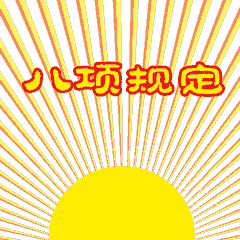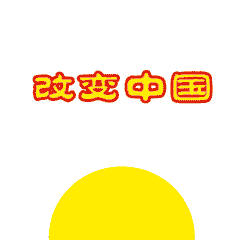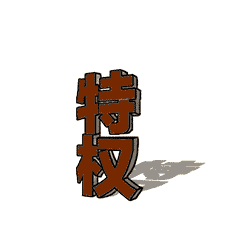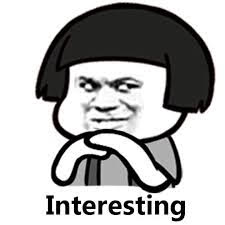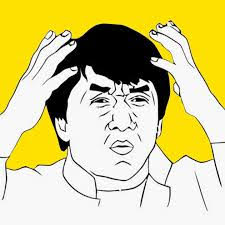CCP approved image macros
« previous post | next post »
Two powerful agencies of the PRC central government, Zhōnggòng zhōngyāng jìlǜ jiǎnchá wěiyuánhuì 中共中央纪律检查委员会 ("Central Commission for Discipline Inspection") and Zhōnghuá rénmín gònghéguó jiānchá bù 中华人民共和国监察部 ("People's Republic of China Ministry of Supervision"), have issued "bā xiàng guīdìng biǎoqíng bāo 八项规定表情包" ("emoticons for the eight provisions / stipulations / rules"); see also here. The biǎoqíng bāo 表情包 (lit., "expression packages") were announced on December 4, 2017, five years to the day after the rules themselves were promulgated.
English translations of the so-called "Eight-point austerity rules" or "Eight-point regulations" may be found here and here. The rules were designed to instill greater discipline among Chinese Communist Party (CCP) members, to bring the Party "closer to the masses", and to reduce bureaucracy, extravagance, and undesirable work habits among Party members.
I don't think "emoticon" is the right English equivalent for biǎoqíng bāo 表情包 (lit., "expression package"), but that's the translation that is floating around the internet for them. One person referred to them as "internet-stickers" and another as "memes" (see below for a more conclusive discussion of how to refer to them in English).
These government promoted biǎoqíng bāo 表情包 (lit., "expression packages") are minimally animated, in a rather annoying sort of way since they incorporate text, most of which is quite small and in various odd fonts. The movement is fast and jittery, and the characters disappear almost as soon as they appear (see the links in the first paragraph; for simplification of posting and clarity of discussion about their content, I'm not attempting to include the gif animation of the biǎoqíng bāo 表情包 [lit., "expression packages"] in this post).
The "expression packages" illustrated and discussed below exemplify and promote the Zhōngyāng zhèngzhì jú bā xiàng guīdìng 中央政治局八项规定 (" The Eight Provisions / Stipulations / Rules of the Political Bureau of the Central Committee"), which were promulgated in December, 2012. The "expression packages" are not one-for-one equal to the "The Eight Provisions / Stipulations / Rules of the Political Bureau of the Central Committee". Rather, some of them draw attention to or highlight the importance of the Eight Provisions as a whole, while others exemplify the actual content of certain of the rules. One rule may be embodied in more than one "package". Consequently, there are more then eight "packages".
I'll just cite two of the "packages", the first one general and the second one specific, to show what they're like.
bā xiàng guīdìng, gǎibiàn Zhōngguó 八项规定,改变中国
("the eight provisions are for changing China")
tèquán 特权
("privilege")
By devising these "expression packages", the government is trying to promote the Eight Regulations among the people, to make citizens feel more comfortable and familiar with rules that were originally directed at bureaucrats.
The reaction of the populace has been underwhelming. There has been a lot of criticism and skepticism voiced on the internet against the government approved "expression packages". Netizens say that they will never use them and don't even have a clue how to use. Some say that all the sloganeering reminds them of the Great Leap Forward, which is quite a slap at the government, since that disastrous Maoist movement led to the deaths of tens of millions of Chinese. Others criticize the government for using formalism to denounce formalism. Disapproval of the "expression packages" extends to their meaning, logic, and design, down to the tiniest detail.
One thing is certain, when the government is trying to compete with real, spontaneous, creative biǎoqíng bāo 表情包 (lit., "expression packages") such as these, they are bound to lose — badly:
Wǒ juédé OK 我觉得OK
("I feel OK")
Wèishéme bù wèn wèn shénqí de Wéijī bǎikē ne? 为什么不问问神奇的维基百科呢?
("Why don't you ask fantastic Wikipedia?")
See "Duang" (3/1/15) and "More on 'duang'" (3/19/15).
The most important previous posts for these biǎoqíng bāo 表情包 (lit., "expression packages") are "'Facial expressions' in text-dominant online conversation" (8/2/16) and "Intentional mistranslation " (11/8/15), where I referred to them as "image macros".
See also, inter alia, the following:
- "Chinese emoji, with a twist" (5/23/17)
- "Is there a practical limit to how much can fit in Unicode?" (10/27/17)
- "Emoji, language, and translation" (Pinyin New [10/22/15])
As it does in so many ways (rap, hip-hop, anime, etc.), the government is trying to compete with pop culture. Or perhaps it would be more accurate to say that the government is trying to ride on the coattails (co-opt / borrow the power of) pop culture. Sorry, CCP, that's not the way it works. As several of my PRC graduate students remarked, these government sanctioned image macros are boring, boring, boring — not fun or clever at all.
[h.t. Nikita Kuzmin; thanks to Zeyao Wu, Jinyi Cai, Fangyi Cheng, and Jichang Lulu]
